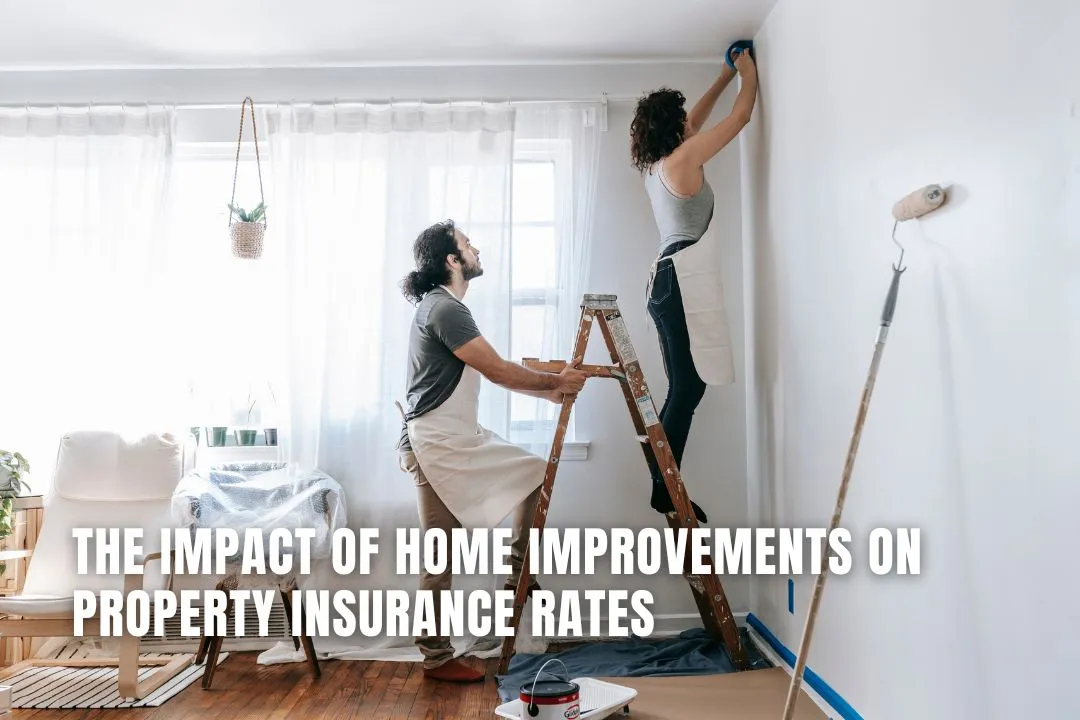
Editorial Disclaimer
This content is published for general information and editorial purposes only. It does not constitute financial, investment, or legal advice, nor should it be relied upon as such. Any mention of companies, platforms, or services does not imply endorsement or recommendation. We are not affiliated with, nor do we accept responsibility for, any third-party entities referenced. Financial markets and company circumstances can change rapidly. Readers should perform their own independent research and seek professional advice before making any financial or investment decisions.
Home improvements can add value and comfort to your property, but they can also influence your property insurance rates. Whether you’re installing a new kitchen or adding an extension, it’s important to understand how these changes might affect your premiums. Continue reading to discover all there is to know about the impact of home improvements on property insurance rates!
When you make significant changes to your home, insurers will reassess the risk associated with your property. In some cases, home improvements can lead to higher premiums, while in others, they may reduce your costs.
If you are improving a second property, such as a holiday home, your insurance needs will differ from those of your primary residence. Many insurers offer tailored insurance for a holiday home, taking into account the level of occupancy and the risks associated with unoccupied properties. It’s important to understand that holiday homes may require a specialist policy, especially if improvements such as additional bedrooms or a hot tub are involved.
One of the most obvious ways home improvements affect insurance rates is through an increase in your property’s value. Insurers base premiums on the cost of rebuilding your home if it is damaged. For example, if you add an extra bedroom or renovate your kitchen, the rebuild cost increases, leading to a higher premium. It’s essential to update your policy after any improvements to ensure your property is adequately covered. If you want to update your kitchen without seeing the hike in property insurance, consider updating your countertops. If you're in the UK, Bellagio Stone offers kitchen worktops local to Coventry.
Upgrades that enhance your home’s safety, such as installing a burglar alarm, a fire suppression system, or modernising electrical wiring, can often reduce your insurance rates. These improvements decrease the risk of damage or loss, which insurers reward with lower premiums. Additionally, if you’re adding fire-resistant materials to your property, you may benefit from discounted rates.
If your home improvements include building a garage, adding a pool, or constructing a garden shed, it’s important to inform your insurer. New structures may change the level of risk associated with your property.
For instance, a pool increases the risk of accidents, which could lead to higher premiums. On the other hand, a professionally installed garage could have a neutral or positive effect on your rates, as it may protect your vehicle and provide additional security.
The type of materials used during renovations can impact your insurance rates. For example, homes made from non-standard materials, such as timber or thatch, may face higher premiums due to the increased risk of fire or other damage. On the other hand, if you upgrade to fire-resistant materials or structural enhancements, your premium could decrease.
Before undertaking major renovations, it’s a good idea to speak with your insurer. They can guide you on the potential effects of your planned improvements on your coverage and rates. Keep in mind that the right home improvements can protect your property and potentially reduce your premium in the long run.
Incorporating home improvements can increase your property’s value, but it’s crucial to understand how these changes affect your insurance coverage. Always keep your insurer informed, and review your policy to ensure you’re adequately protected after any renovations. If you’re unsure about the impact on your rates, consult a specialist to help you navigate your options.